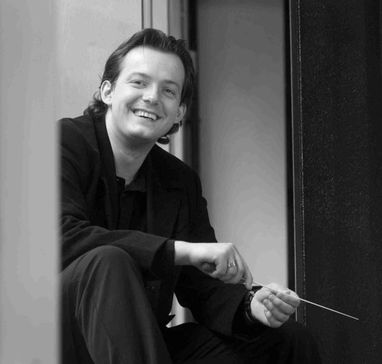Ashley's InsightsMusings on music, teaching, life, and interconnectedness. Archives
April 2020
Categories
All
|
Back to Blog
A Momentous Day for Boston and for Music6/25/2013  Andris Nelsons (photo by Adrian Burrows) Andris Nelsons (photo by Adrian Burrows) Today I had the astounding opportunity to see classical music history in the making. A coworker of my friend Callie sings with the Tanglewood Festival Chorus and and thus had an invitation to see conductor Andris Nelsons take the helm of the Boston Symphony Orchestra; knowing my passion for orchestral music and background, she invited me along for a "lunchtime Q&A and speech-making". I, of course, would have in no way passed this opportunity up. Andris Nelsons has big shoes to fill; he is officially the Music Director Designate until the start of the 2014-2015 season and will at that point succeed James Levine as the 15th Music Director of the BSO. Born in Latvia in 1978, Maestro Nelsons is a trained trumpeter and has been the much lauded conductor of the City of Birmingham Symphony Orchestra since 2008. He grew up in a highly musical family and is married to soprano Kristīne Opolais, who recently made waves in her Met debut as Magda in Puccini's La Rondine. With such a pedigree, one can only imagine and hope that Maestro Nelsons carries on the stellar musicianship, forward momentum, and energy Maestro Levine injected into the BSO during his reign. Having had the pleasure of hearing Andris Nelsons speak about his artistic vision, his background, and his wishes to become a part of the Boston fabric, I at least have no doubt of his energy. He waxed philosophical at every corner about how music feeds the soul and pandered to the Boston crowd, calling the city America's cultural center. He spoke about attending sporting events (he's throwing out the first pitch at Fenway tonight), getting a "large apartment" in the city for his young family, and invigorating the BSO with his favorites, Bruckner and Shostakovich, all with the dazed and giddy look of a young man trying to convince himself that this pageantry is all real. While James Levine sparked criticism for dividing his time and focus between Boston and the Met, Andris Nelsons seems poised to reinvigorate the Boston classical music scene both with his baton and his public persona and thus reclaim music's rightful place at the cultural center of the city. I don't think it is a secret to anyone that the classical music world is at a crossroads. The new media revolution and an aging demographic have shrunk concert attendance, and a studied arrogance and elitism that permeates the scene has been effective at alienating younger patrons. Boston particularly has the added challenge of being home to a staggering number of high-quality arts groups all competing for a shrinking audience. As someone with an eye on these trends and a purely selfish stake in overcoming them, I have been watching the BSO as it has searched for James Levine's replacement to see how, if at all, their choice would reflect an effort to combat this decline as well. I am admittedly a fan of James Levine; I have seen him both at Symphony Hall and Lincoln Center, but in one short hour, Andris Nelsons won me over as the perfect choice for Boston musically and politically. Today's event began with introductory speeches by Ted Kelly and Maestro Nelsons, and they included many of the platitudes one would expect to hear in such a situation. However, Maestro Nelsons soon made an analogy that really struck me in terms of audience development; to paraphrase, Maestro Nelsons asserted that just as one needs to periodically go to the doctor for a physical check-up, so must one periodically experience live music for a "check-up of the soul". Andris Nelsons in one very brief statement, essentially issued a manifesto carving out the BSO's place in Boston; he does not see classical music, or really any art form, as being ancillary to the nature of the city or its denizens, and he seems willing to put in the work to humanize himself and the symphony and thus regain relevance. We musicians and smaller organizations can learn a great deal from just this simple introduction to Andris Nelsons. Too often we forget in the course of our programming and planning why we do it all. Performing live music is not a hobby and not a treat; it is something that a significant portion of the populace devotes countless hours to rehearsing and participating in. Live music is both a check-up for the soul as Andris Nelsons asserted today and an essential part of the human experience. Music serves as a time capsule, capturing both the mood of a composer and his/her peers and the mood and practices of the groups performing that composer's work at any given time. It communicates to the masses intricate emotions that no other language has truly been able to fully express and carries with it an unbelievable amount of power and nuance. If we as musicians and artists can create an honest and complete context for what we do; if we can stand behind our work with the same kind of conviction, high-mindedness, and unabashed hope, I believe we can begin to reverse this trend of shrinking audiences and increased obscurity. Good luck, Maestro Nelsons; I look forward to hearing you in Symphony Hall.
2 Comments
Read More
|
 RSS Feed
RSS Feed